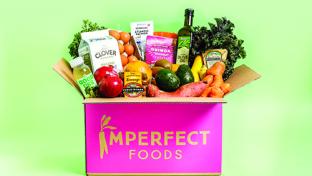Roster of 'Upcycled Certified' Products Grows

“Waste not, want not” may be a saying that dates to the 18th century, but the push to reduce food waste in an era of greater sustainability has gained traction in the early 2020s. One facet of the effort to curb food waste is growing, as the Upcycled Food Association reports that products with an Upcycled Certified designation are indeed making a difference, preventing up to 703 million pounds of food waste a year.
According to this industry group, 141 products and ingredients have successfully completed the rigorous certification process to be deemed Upcycled Certified since the program was launched in mid-2021. Products are made from brands and companies such as Del Monte Foods, Inc., GoodSport Nutrition, imPasta Foods, Take Two Foods and Imperfect Foods, among others. The process is overseen by Where Food Comes From, a third-party certification body.
"Upcycled Certified has been even more successful than we imagined," reported Turner Wyatt, CEO of the Upcycled Food Association, based in Greenwood Village, Colo. "The products and ingredients that have gone through the certification thus far span food, cosmetics, personal care and pet food, and are created by both small startups and global legacy brands. This represents a major shift in our consumer product and retail environments because for the first time, consumers can help to prevent food waste every time they walk into a grocery store."
Wyatt said that interest in such sustainably-marketed products is growing, citing a 2021 study on food waste conducted by the Silicon Valley food and beverage development company Mattson Co. That survey found that more than half of consumers are more likely to buy a product containing food that would have otherwise not gone to human consumption.




.jpg?itok=HJJ4sIxG)


